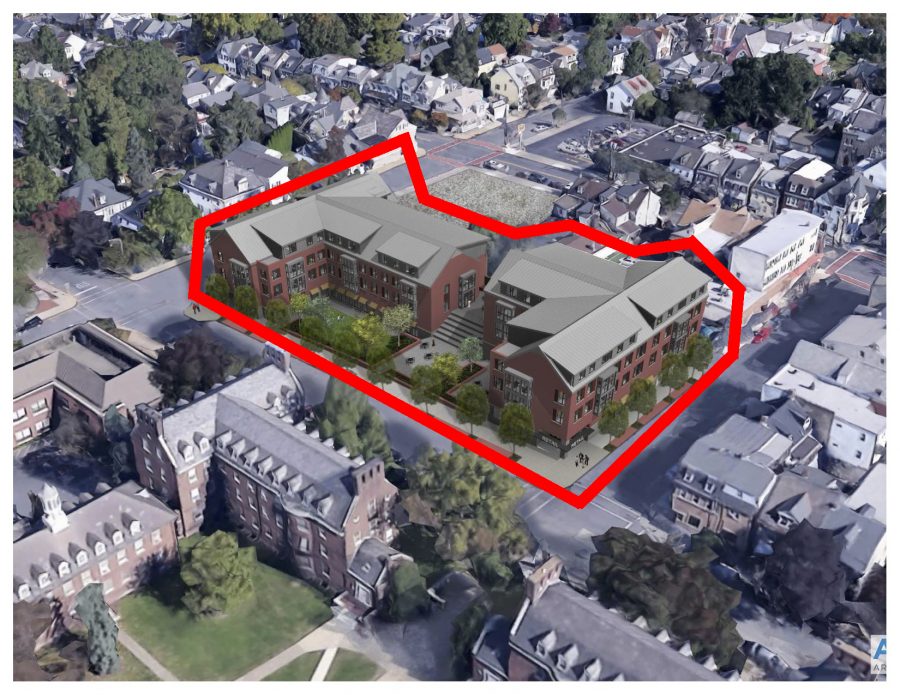The college is considering funding the new McCartney Street Dorms through a student housing development firm. If the Board of Trustees approves this model, known as a Public-Private-Partnership or P-three deal, students housed in the dorms would lease their dorms from the firm, not from the college.
Vice President of Finance and Administration Roger Demareski said that following the Board of Trustees vote on this plan the weekend of May 18, he expects the project will break ground in the first week of June.
Demareski added that one of the main reasons the college is considering outsourcing construction and ownership of the McCartney dorms is so that it can remain “off the balance sheet,” meaning the college wouldn’t have to take on any debt—thereby freeing up that debt capacity for other projects.
By allowing an outside company to finance the project, Demareski said, the school will be better able to finance projects that don’t produce revenue, like academic buildings and American Disability Act (ADA) compliance modifications to existing buildings.
The construction of the building would be funded by the developer, while the college would continue to own the land. The developer would own the building, construct the dormitory and manage facility upkeep and custodial work.
Demareski said the main difference between college-owned housing and the P-three model is that the housing lease contract would be signed with the developer rather than the school. The housing prices would be consistent with the current tier-four or tier-five prices typically associated with off-campus housing.
“For all intents and purposes, it will feel exactly like an on-campus facility to a student,” Demareski said.
Demareski also noted that just as for college-owned housing, the college’s Office of Residence Life would handle room and resident advisor assignments in the P-three model.
The school would maintain the book store and dining hall planned for the first floor of the McCartney Street building.
As the plan has not yet been approved by the board, Demareski said he is unsure of how the housing payment model would be run. The “cleanest” model, he said, would be one in which students pay housing fees directly to the developer. Other models involve students paying the school, who then pay the developer.
Other institutions have utilized student housing development firms for their projects. Bucknell University, Franklin & Marshall College and University of Pennsylvania have all used student housing development firms to pay for housing development projects. Demareski’s prior employer, Princeton University, used the P-three model for several of their previous housing development projects.
The alternative to outsourcing the project would be for the school to pay for the project themselves.
In some cases, Demareski said that a school might utilize a student housing development company because they do not have the debt capacity to pay for the building otherwise. He added that, though Lafayette has the ability to fund it themselves, it would be preferable to maintain the debt capacity for academic buildings.
He also said that the primary impetus for not outsourcing the housing project would be to maintain total control. As any student housing development company that the school hired would be a private company seeking to make a profit, Demareski said, this option could be more expensive.
“The reason you would not outsource is to gain control and sort of regain the profit,” he said.
Although the school would lose some control in the process if the board votes to use the P-three model, Demareski said, many aspects of the development and maintenance would still fall under the college’s jurisdiction.
“It’s a design that we put together, we did all the zoning, all the approvals,” he said. “That building’s right across the entrance…so we wanted to know exactly what we’re going to have built there.”
“The mechanisms of who’s going to build it that can be decided [later], [but] we control the look, the amenities, the room size, the book store, the dining, that’s all decided by the college,” he added.

























































































































